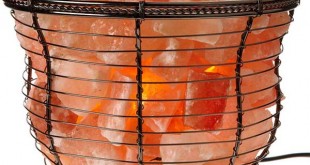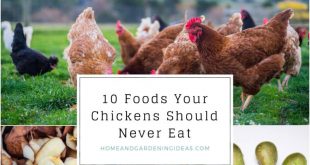8 Ways Apple Cider Vinegar Can Help Care For Your Chickens
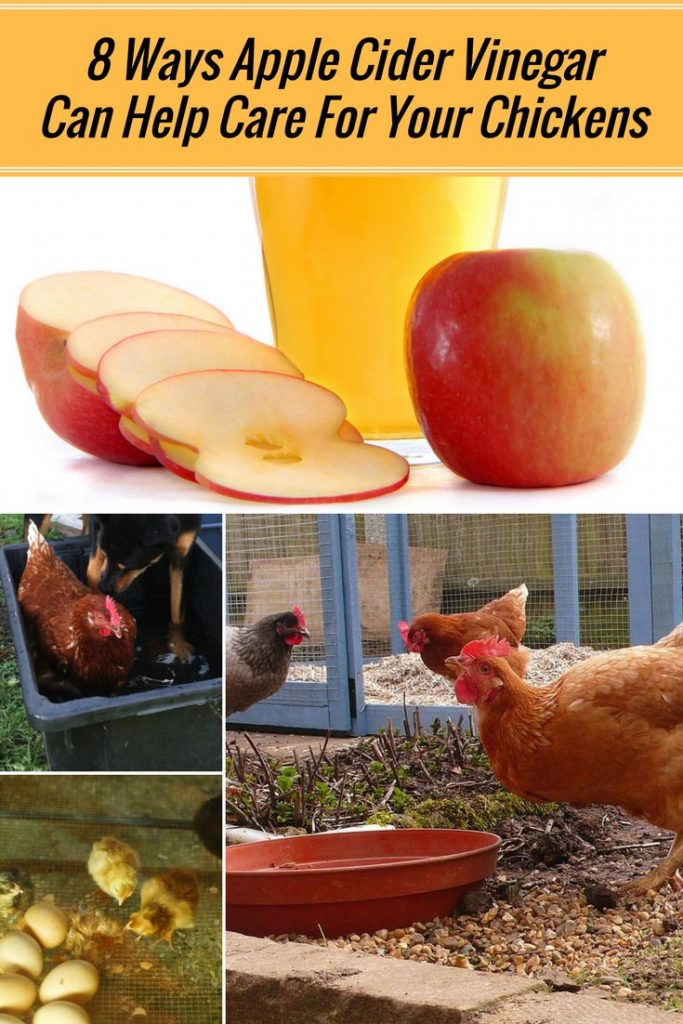
Apple cider vinegar is truly a miracle elixir with enumerable applications, in and out of the coop. Vinegar is made using 2 consecutive fermentation processes. The type of vinegar produced is determined by the item being fermented, not by the process. For example, red wine vinegar is made by fermenting red wine to alcohol and then fermenting the alcohol to acid. Similarly, apple cider vinegar is made with apple cider. The result of this chemical process, vinegar, is worth far more than the sum of its parts, particularly when it’s apple cider vinegar.
Poultry farmers were quick to realize that the health benefits humans enjoy from consuming apple cider vinegar transfer to chickens as well. It’s particularly useful for stressed out birds which are more likely to have compromised immune systems and therefore more susceptible to disease and parasites. Apple cider vinegar boasts a range of minerals, trace elements, and vitamins. It’s also good for digestion, lowering pH in the stomach, clearing respiratory distress, and blood detoxification. There’s a reason it’s a long-standing household staple.
In addition to its health benefits, apple cider vinegar is a natural antiseptic and mild antibiotic. Like most vinegars, it’s a wonderfully versatile cleaning agent. To get the most out of apple cider vinegar intended for consumption, be sure to buy raw, unpasteurized apple cider vinegar. You can find this in health food stores alongside the pasteurized iteration, but it’s much more affordable to buy large containers of it at your local farm and garden store. You’ll be amazed by all of the different ways that this one substance can make your life easier and your chickens healthier.
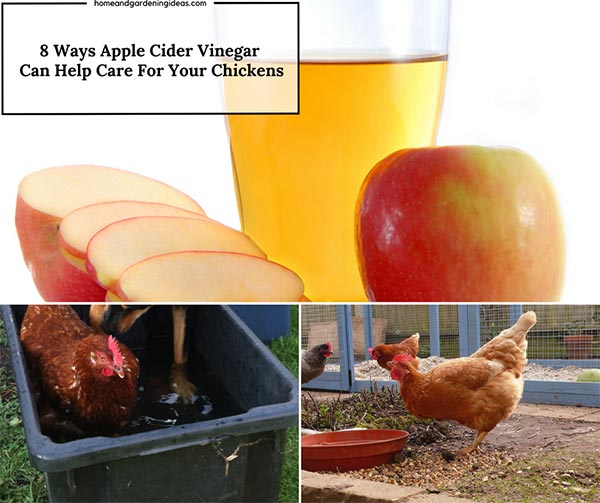
Here are just 8 of the best ways to use apple cider vinegar in your coop
1. Egg wash
Use warm apple cider vinegar to clean your eggs. This process gives a whole new meaning to the term “egg wash” by restoring the natural color of the eggshell, loosening grime, and removing dirt. Just dip the eggs for about 10 seconds in warm vinegar to effectively clean and beautify them before cracking them on the edge of your skillet.
2. Chicken bath
That’s right, you heard me: bath time for chickens. It’s a good idea to give your chickens a soapy bath every now and then. Adding vinegar cuts soap residue while conditioning their feathers and skin. It even helps to reduce the likelihood of bug infestations. Plus, when someone asks you what you did over the weekend, you can honestly say that you were “rinsing your chickens.” Haven’t you always wanted to say that?
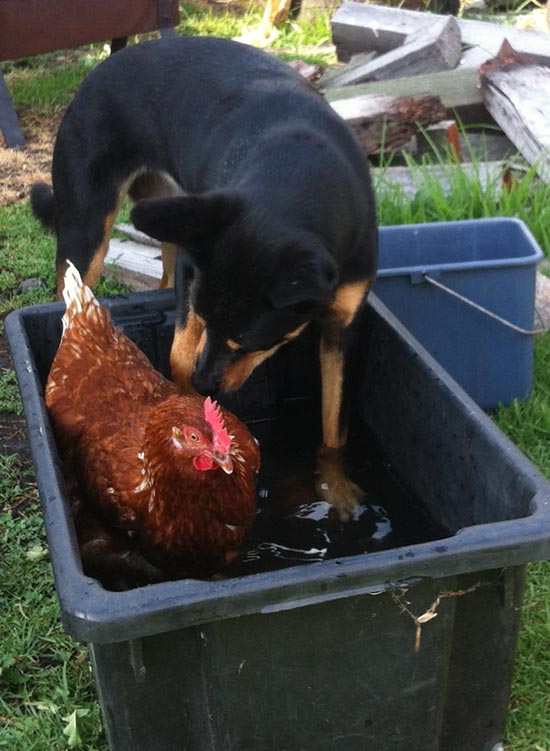
3. In a similar vein: foot soak
You don’t have to dunk the whole bird to get some benefit. Try giving your chickens a nice foot bath with added vinegar. It will soften the dead skin on their feet while reducing fungus under their toenails and cleaning minor cuts and abrasions, a natural result of scratching behavior. You can either stand your chickens in a shallow tub of vinegar and warm water or apply this mixture as a compress. For the full benefit, scrub your now-softened chickens’ feet with a bristle brush, rinse, and apply Vaseline to any scratches. The Vaseline will also discourage bugs.
4. Pest deterrent spray
When Ben Franklin said, “an ounce of prevention is worth a pound of cure” he probably wasn’t talking about chickens and parasites, but the axiom holds true nevertheless. Spraying diluted vinegar around the coop and on the chickens themselves, especially under the wings and on their legs, can forestall an infestation of lice, mites, or other pests. Without these preventative measures, you’re more likely to see an outbreak that would require a more heavy-handed approach involving harsh chemical sprays to get rid of the bugs.
5. Enhanced water
Just as apple cider vinegar promotes a healthy respiratory system in humans, so it does for chickens. Apple cider vinegar has several qualities that make it valuable as a supplement. It has antibiotic properties and it naturally reduces mucous. Regularly ingesting small amounts creates a healthy digestive system, improves water retention, and boosts the immune system. Its acidic nature also creates an inhospitable environment for bacteria. Try adding a couple of teaspoons to your waterer the first week of every month. The ratio for adult birds should work out to approximately 2% apple cider vinegar. For chicks, dilute the solution further to approximately .5% to promote healthy growth and feathering. While it’s good to be careful with supplements, apple cider vinegar is natural and isn’t likely to hurt your flock if the ratio is inexact.
Note: vinegar is acidic and should only be used in plastic water containers. Metal containers might corrode, thereby leaching harmful chemicals into the drinking water.
6. Cleaning the incubator
Vinegar is a useful substance for cutting odor, disinfecting, and preventing mold and mildew from growing. Newly hatched chicks may be cute and fluffy, but they can leave the incubator a stinky, splattered mess. It’s a good idea to wipe it down with diluted vinegar before putting it away until next year. For the area inside the incubator around the motor, use a cotton ball with rubbing alcohol which evaporates quickly and won’t lead to rust.
7. Cleaning those hard to reach places
Use a diluted vinegar solution to spray down intricate cages and fencing as well as perches to thoroughly disinfect. Chickens are indiscriminately messy and it’s hard to keep up with them, but a good spray down can keep the worst of the bacteria away. Spray inside any cracks or crevasses in their coop and scrub out the food and watering containers and brooder box.
8. Dye Easter eggs
It’s almost Easter; did you know that the acid in vinegar can be used to dye your eggs for Easter? So, after using vinegar to clean and feed your chickens, don’t forget to show off their beautiful eggs with this colourful application of vinegar. Once you have the vinegar and hot water in the containers for your Easter eggs, add a few drops of food coloring to each container then Dip the Eggs.
 Home and Gardening Ideas At home and Gardening ideas we believe inspiring readers about homesteading, self sufficiency
Home and Gardening Ideas At home and Gardening ideas we believe inspiring readers about homesteading, self sufficiency
